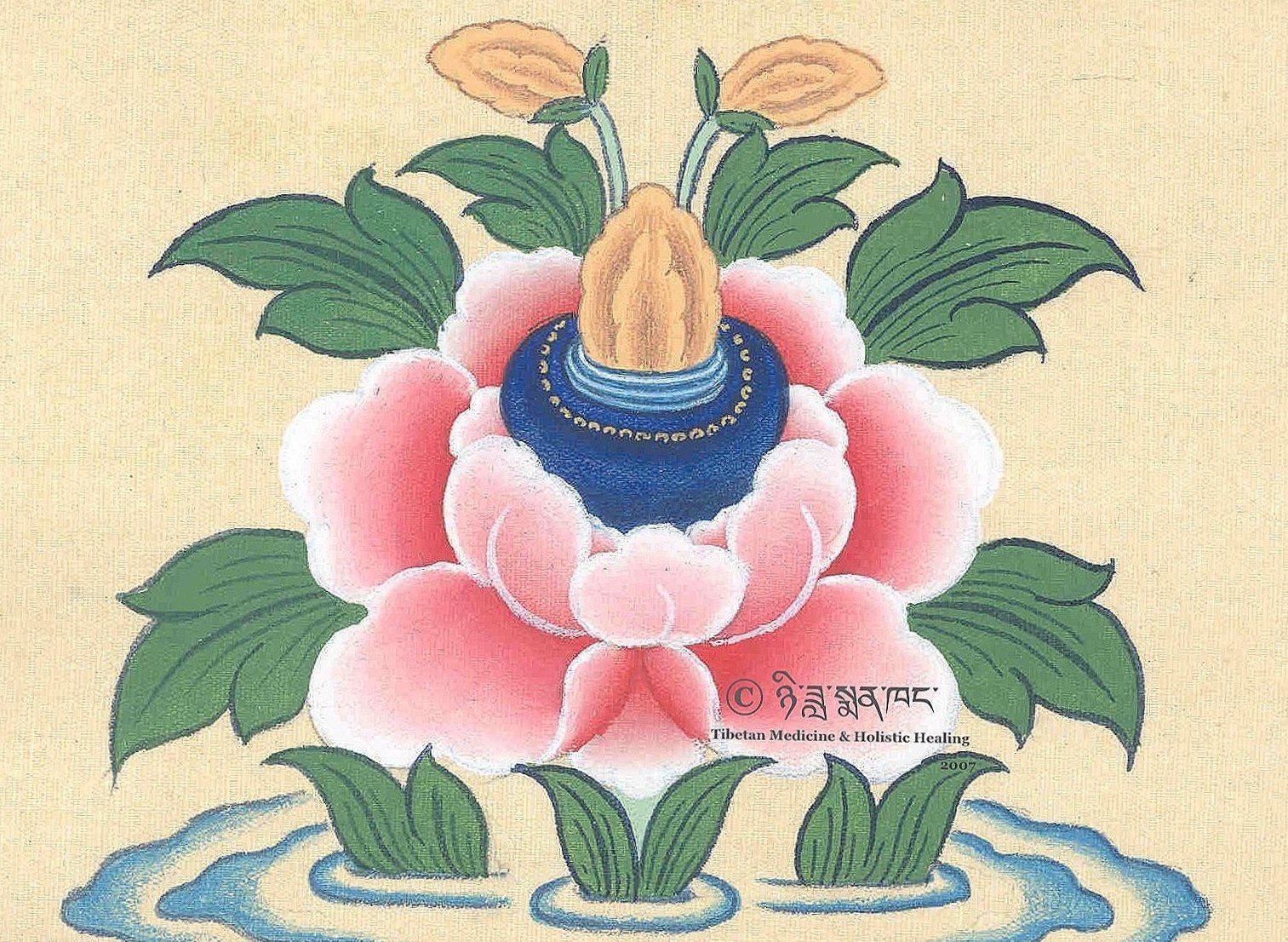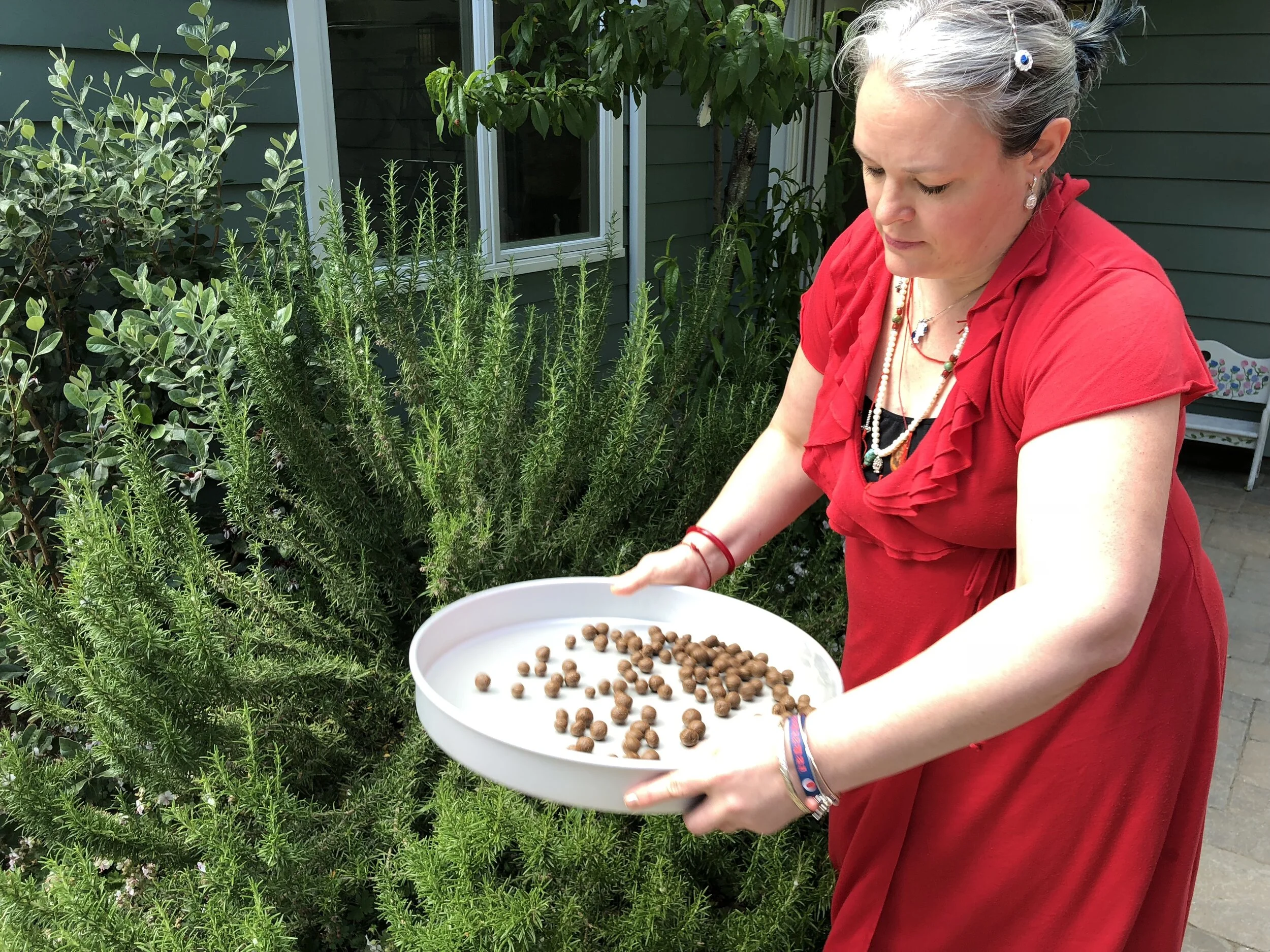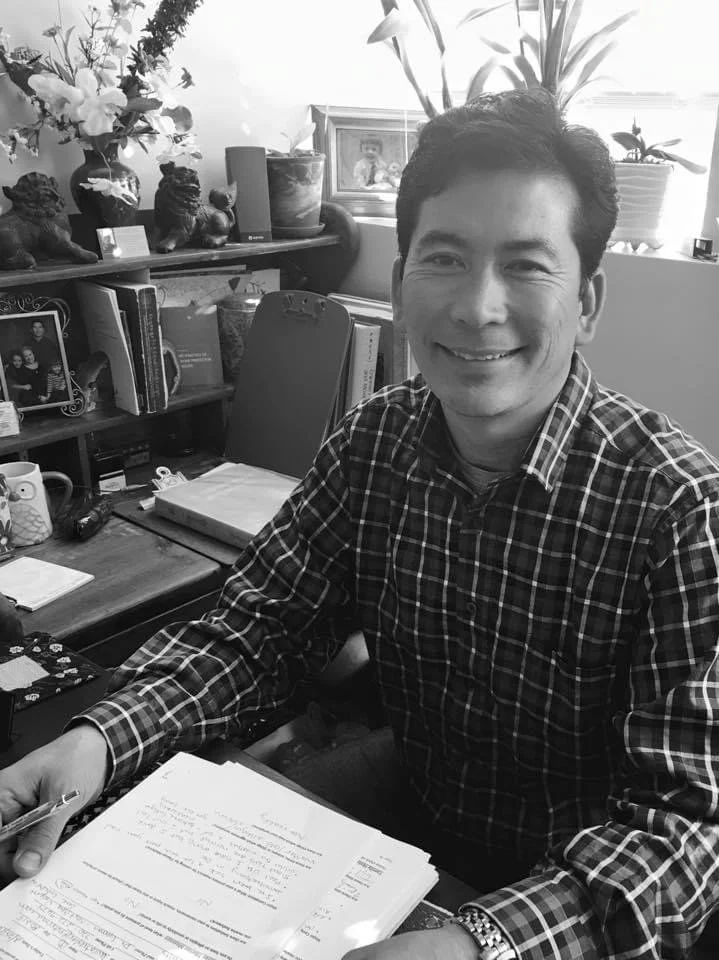Nyinda Clinic ༄༅།།
ཉི་ཟླ་བོད་སྨན་ཁང།
A family run clinic offering Tibetan Medicine & Holistic Healing for the whole family.
It all started when…
In 2002, Nashalla Gwyn began giving dietary and heath consults based on Tibetan Medicine principles and Western nutrition. At the request of her teachers upon completion of her BA from Naropa University, she opened a practice. She had focused on Buddhist psychology and various Asian healing modalities in the Interdiciplinary program. Alongside wellness consults, she offered Jin Shin Tara Acupressure techniques and trauma repatterining sessions. One of the first students to complete requirements for teacher certification of The Tara Approach; she began teaching for the Tara Approach at Naropa University and within Colorado with certification to follow in 2004.
Following her bachelors, she expanded her various Asian medicine studies. She learned Ayurvedic Panchakarma, Marma point therapy and general Ayurvedic Medicine. Meanwhile, she dove deeper into Tibetan Medical theory, pharmacy and formula making traditions wthin Tibetan dietary supplements. She became a teaching assistant for the Introduction to Tibetan Medicine I & II class at Naropa University. Her original teacher, Dr Philip Weber, an MD who carried out a deep study and use of Tibetan medicine principles within his family practice for decades, encouraged her to continue to study further. Nashalla completed the course requirements for Plant Spirit Medicine internship with Elliot Cowen and added PSM into her services.
Nashalla longed to return to Asia for more clinical experience. At the time she was integrating Tibetan Medicine into her other healing practices, there was little written in English about Tibetan medicine and certainly no school programs. In the interim, she helped facilitate and run programs for visiting Tibetan doctors in Colorado and New Mexico. She received permission to give the Tibetan medicine formulas in 2004 from a Men Tsee Khang physican she had worked with for several years.
Following direct guidance from her Root Guru and Buddhist teacher, the Venerable Thrangu Rinpoche who understood Nashalla’s drive to know Tibetan Medicine in its entirety, she left Boulder for India in early 2005. This seemed to be the most legitament way to complete studies in Tibetan Medicine because nothing existed outside of Asia in a complete form. Vital to her, she did not want to be a ‘slightly’ or even ‘well trained practitioner’ who knew only parts of the system. There were some people calling themselves Tibetan Medicine doctors or practitioners without full lineage training, and this was troubling to her. Nashalla wanted to be careful not only of cultural appropriation issues, but wanted to offer the full system, with full training behind her. She studied Tibetan language and culture at Manjushri Institute and took private lessons in language and medicine in an apprenticeship style learning model from various doctors at the Chagpori Institute’s clinic in Darjeeling, India. She received the rGyud Zhi transmission at the request of the Chagpori clinic doctor. She traveled to Kathmandu in order to receive transmission teachings directly from the medical texts. This is both a traditional requirement to receive formal teachings and is considered receiving the blessings of the lineage. Darjeeling is where she met and married her husband Dr. Tsundu Sengye Nyinda, one of the clinic pharmacy doctors of the Chagpori Institute.
After returning to the States, Nashalla finished her degree as a traditional Doctor of Tibetan Medicine at the Shang Shung Institute of Tibetan Medicine; which at the time was doing the first ever classroom based teaching model outside of Asia. The head of the institute Dr. Phuntsog Wangmo met and tested Nashalla, allowing her to join their first ever class for complete training as Tibetan physicians in progress. Following her final exams over the Four Tantra’s at Shang Shung and in conjunction with the Qinghai Tibetan Medical College, Nashalla went to Tibet to re-take exams and do an internship in 2009. Qinghai Tibetan Medical College conferred her with a certificate as a Menpa, or TMD (Doctor of Tibetan Medicine) following exams. After her 10 years of study Nashalla was able to bring the modality back to Boulder, Colorado.
While this husband-wife team waited for Nashalla to complete her studies from Shang Shung Institute, they frequently returned to Colorado and New Mexico to see patients.
They officially re-opened the Boulder clinic in 2010 and expanded to have 2 rooms, one for Kunye Massage and external Therapies and one for traditional Tibetan Medicine consults allowing both Tibetan Doctors to see patients simultaneously in 2010. Nashalla started traveling to teach about Tibetan Medicine and give clinical appointments. She regularly travels internationally to lecture and teach Tibetan medicine and Buddhism. Post Covid they narrowed the practice, to limit numbers of patients seen in a day or interactions between patients.
Leela WH-Parker, Tibetan Medicine Practioner, LMT and Wise Woman Herbalist, herself a graduate of Shang Shung Institute’s 3rd batch of students. She joined as an intern in the Nyinda Clinic in 2015 and remains today offering the Kunye Theraputics massage and bodywork for our patients. See more about Leela under our Internship & Interns page
Nashalla, herself a receiver of Classical Five-Element Acupuncture since the age of 15, longed to connect the ancient Taoist principles she so often saw mirrored in Tibetan Vajrayana. She Joined the Practitioner Track at The Taoist Institute of Education and Acupuncture for a Masters in Acupuncture, and is in process of studying for the national board exams for her license to practice with needles.
Tsundu and Nashalla hope to continue to help establish Tibetan Medicne in the United States. This is done with the hope of making lasting connections with local MD’s and specialists to best serve their patients. It is their hope that with good working relationships in allopathic medicine, they can further contribute to the stabilization of authentic Tibetan Medicine therapeutics. Either as a primary or adjuvant complementary therapy, the Tibetan system of healiing has a wide range of services and potential to benefit both acute and chronic conditions.




